September 21, 2017
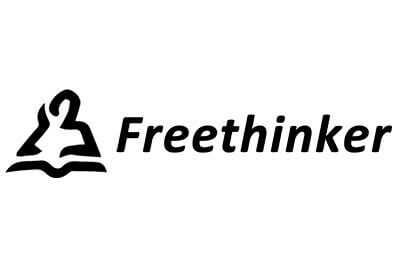 MPA’s new student-run school newspaper, Freethinker features stories this week ranging from fostering friendships to nostalgic goodbyes.
MPA’s new student-run school newspaper, Freethinker features stories this week ranging from fostering friendships to nostalgic goodbyes.
“Mr. Meacock – A Final Farewell” is one of the most recent stories published in MPA’s independent student newspaper, “Freethinker.” The article is a heartfelt letter saying goodbye to former MPA Upper School English teacher Mr. Meacock, reminiscing about “the unplanned” days in his classroom and thanking him for encouraging students to “not only to be good academics, not only to constantly question and discuss, but also how to be good people.”
“A Story of Fried Food and Friendships: The Freshman State Fair Retreat” illustrates the famous, massive, and historic Minnesota State Fair and the MPA Freshman school field trip to it. The story captures the importance of independence and building relationships, all while surrounded by meals on a stick.
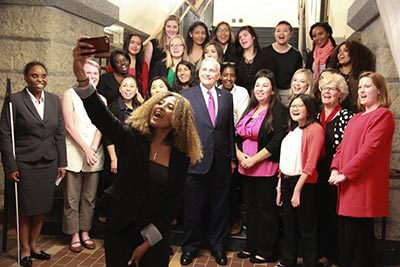 On September 9, MPA junior Ling DeBellis was appointed by Governor Mark Dayton and Lt. Governor Tina Smith to the Young Women’s Initiative Cabinet! The Young Women’s Initiative of MN aims to improve the lives of young women between the ages of 12 and 24 statewide.
On September 9, MPA junior Ling DeBellis was appointed by Governor Mark Dayton and Lt. Governor Tina Smith to the Young Women’s Initiative Cabinet! The Young Women’s Initiative of MN aims to improve the lives of young women between the ages of 12 and 24 statewide.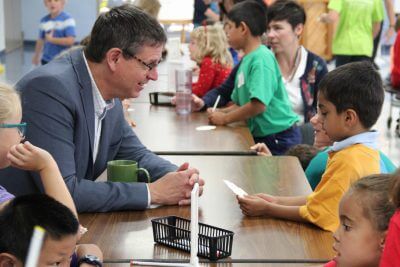 by Dr. Bill Hudson, Head of School
by Dr. Bill Hudson, Head of School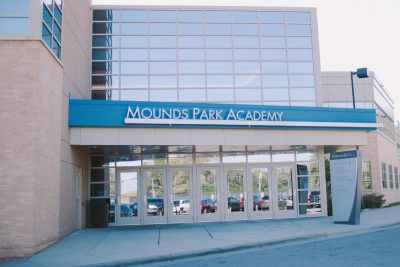 Join our conversations! The purpose of all of MPA’s social media accounts is to connect the entire community including alumni, faculty and staff, parents, students, and friends of MPA. LinkedIn, specifically, is the social media tool that benefits everyone in the Mounds Park Academy network, from faculty to parents to young alums.
Join our conversations! The purpose of all of MPA’s social media accounts is to connect the entire community including alumni, faculty and staff, parents, students, and friends of MPA. LinkedIn, specifically, is the social media tool that benefits everyone in the Mounds Park Academy network, from faculty to parents to young alums.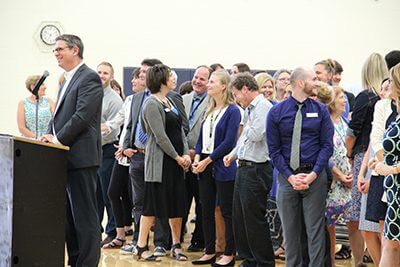 Welcome back to another school year at MPA! Believe it or not, Conference week is fast approaching, September 25-28, 2017. One longstanding tradition at MPA is to provide nourishment for the 100+ faculty and staff during this week. Our faculty and staff spend extra hours at school during this week and one way to help support them is to provide food all day long. (Dinners on Tuesday and Thursday nights that week are provided by the Parents Association directly).
Welcome back to another school year at MPA! Believe it or not, Conference week is fast approaching, September 25-28, 2017. One longstanding tradition at MPA is to provide nourishment for the 100+ faculty and staff during this week. Our faculty and staff spend extra hours at school during this week and one way to help support them is to provide food all day long. (Dinners on Tuesday and Thursday nights that week are provided by the Parents Association directly).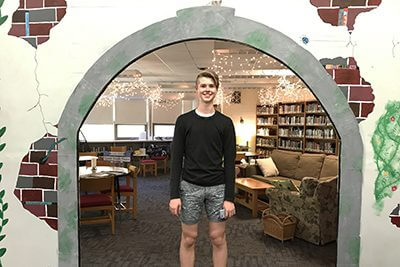 Librarian Nancy Lage has been watching a corner of the Library evolve into The Book Cellar since last year. While students voted on the name, Ms. Lage and Ms. Petrich developed the idea, collaborating with students and former Middle School faculty member Mr. Schwieger to create a space for reading and research for Upper School students, but even more importantly, rest, and rejuvenation. “Kids need a change of scenery sometimes,” Ms. Lage said.
Librarian Nancy Lage has been watching a corner of the Library evolve into The Book Cellar since last year. While students voted on the name, Ms. Lage and Ms. Petrich developed the idea, collaborating with students and former Middle School faculty member Mr. Schwieger to create a space for reading and research for Upper School students, but even more importantly, rest, and rejuvenation. “Kids need a change of scenery sometimes,” Ms. Lage said. Summer was made for students. That might sound counterintuitive for the head of an independent PreK–12 school to say, but please hear me out.
Summer was made for students. That might sound counterintuitive for the head of an independent PreK–12 school to say, but please hear me out.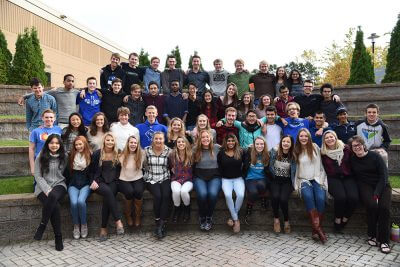 by Dr. Bill Hudson, Head of School
by Dr. Bill Hudson, Head of School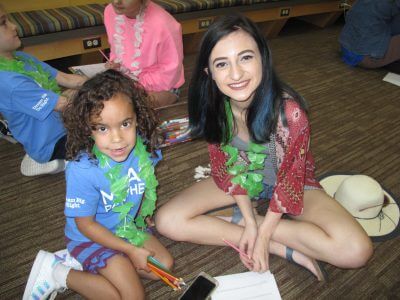 We asked several members of the Class of 2017 what advice they have for the members of the Class of 2029, current kindergartners. Here are a few of their thoughts …
We asked several members of the Class of 2017 what advice they have for the members of the Class of 2029, current kindergartners. Here are a few of their thoughts …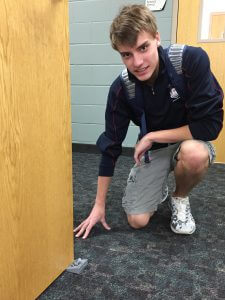 Upper School students in Engineering & Design were recently set free to ask two very important questions that get at the heart of science and the core of engineering: What is your need and how can I help? Students were then able to produce real solutions in 3-D.
Upper School students in Engineering & Design were recently set free to ask two very important questions that get at the heart of science and the core of engineering: What is your need and how can I help? Students were then able to produce real solutions in 3-D.